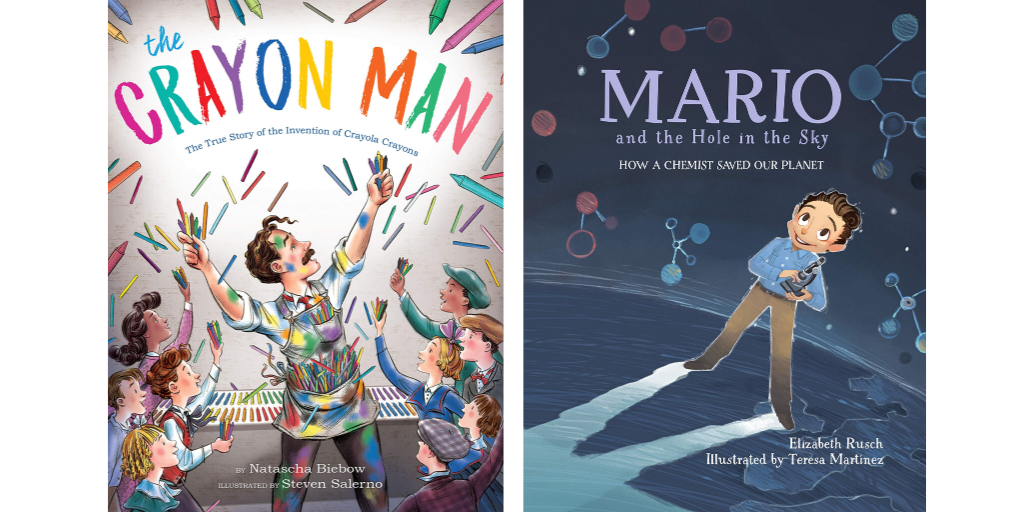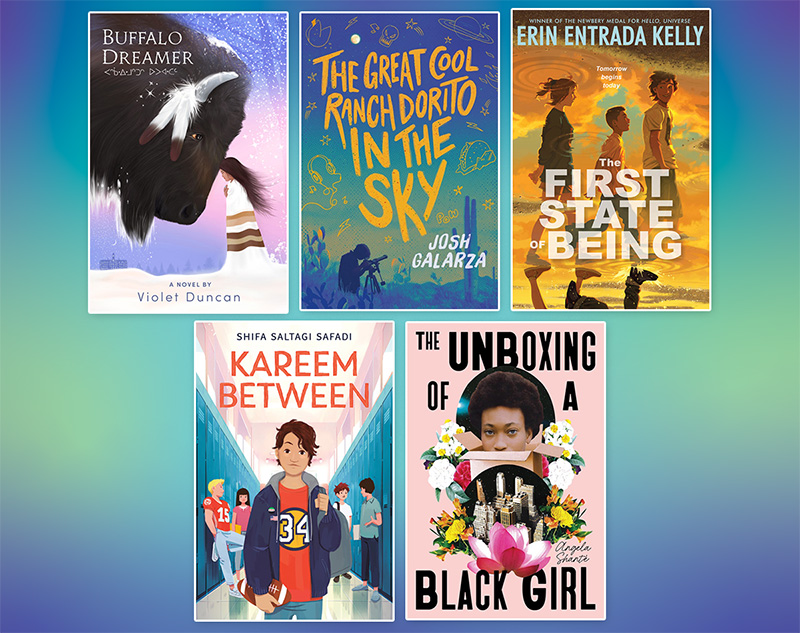Review of the Day: Telling Stories Wrong by Gianni Rodari, ill. Beatrice Alemagna, trans. Antony Shugaar

Telling Stories Wrong
By Gianni Rodari
Illustrated by Beatrice Alemagna
Translated from the Italian by Antony Shugaar
Enchanted Lion Books
$17.95
ISBN: 9781592703609
Ages 4-7
On shelves June 21st
There is a strange comfort in knowing that grandfathers, worldwide, are complete and utter goofballs. I know that people are different everywhere. I know too that we share many similar characteristics. Still, there are few things quite as darned pleasing as a grandfather that knows precisely how to purposefully frustrate his granddaughter to distraction. I also am pleased when a picture book surprises me outright. When first I laid eyes on Telling Stories Wrong by Gianni Rodari, my expectations were not particularly high. Possibly because, as an American, I was fairly unfamiliar with Rodari’s reputation as a children’s book author in Italy. There’s much to be said for lowered expectations, you know. Humans like to be surprised by the unexpected, and surprised I was when I read this little treat. With its exaggerated characters and thick line control, it may need a bit of a leg up to get parents to pick it up. Kids, of course, won’t have any problem at all. They are, in many ways, more discerning than their adult caregivers.
A grandfather tells his granddaughter a classic fairytale. “Once upon a time, there was a girl who was called Little Yellow Riding Hood.” And right away his granddaughter is quick to correct him. “No, red!” Undeterred, he continues to tell the story. However, as he goes, he just can’t seem to get a single solitary thing right! His granddaughter has to tell him that Little Red wasn’t taking her grandmother a potato peel and that it wasn’t a giraffe she met in the woods. Things start to get kookier and crazier the farther into the story they get until, at long last, the granddaughter has to break the news gently to her grandpa that, “you really don’t know how to tell a story.” He takes the news amazingly well.
ADVERTISEMENT
ADVERTISEMENT

Children have very little agency. I mean, what is it that they can even control? When they use the potty. When they eat. When they sleep. Even so, it isn’t until they acquire language that they’re able to start naming the world. And when you name things, you categorize them and put them in order. Storytelling is just a natural part of growing a young person’s brain, and so we make a point of teaching them the stories that their culture is most familiar with. In this particular case, fairytales are the cultural touchstone. So when a child detects that an adult is getting these sacred texts incorrect in their own tellings, finally the kid gets the chance to do something they spend most of their waking life hoping for: getting to tell a grown-up they’re wrong about something. Not just wrong, but egregiously erroneous! Oh, the delight. The joy of it. Now the child is in a position of power. They are dictating precisely what is and is not the truth, and they are RELISHING it. It’s funny how rarely I’ve seen this same relishment (new word) replicated in picture books. The notion of a grandparent having a bit of fun with their grandchild by driving them up the wall with inaccuracies? I mean, that’s just a fantastic premise, right there!
Naturally, I can’t read a picture book like this and not try to figure out the best way that you could read it aloud. For me, I think the key lies in the grandfather’s tone of voice. If you read him as very deliberate and pseudo-serious, I think you could get a huge amount of mileage out of that. Because the wonderful thing about it is that not only is the child reader going to put themselves in the granddaughter’s shoes, they’re gonna be yelling right alongside her!

This story originally appeared in author Gianni Rodari’s larger collection called Telephone Tales. Here in the States he’s not exactly a household name but in Italy he was called “the father of modern Italian children’s literature”. When pulling a tale out and making it its own book, it’s interesting to think that it’s thanks in large part to the art that the ending feels as touching as it does. In the story, the grandfather says that the wolf gives Little Red Riding Hood instructions on where to find a coin to buy herself some bubblegum. The granddaughter, who has by this point pretty much given up on getting a straight story from her grandpa, asks for a quarter for herself. It is freely given and the grandfather goes “back to reading his newspaper.” An unkind reading of the written story could make the assumption that the grandfather doesn’t want to tell stories at all and is just finding some excuse to get the kid to leave him alone for a little while. But because artist Beatrice Alemagna got involved, there’s a sweetness in the art that softens this not wholly untrue interpretation. The penultimate view of the grandfather, after all, is of him giving his granddaughter some money for bubble gum, while also giving her a hug.
Alemagna, for the record, is a rather fascinating artist. It’s little wonder that the American publisher Enchanted Lion Books keeps publishing her. There’s little here that looks like her previous titles like Child of Glass, for example. Even On a Magical Do-Nothing Day had a different vibe and feel. Here, her paints fall more broadly than in the past. There is far less detailed linework. The whole enterprise feels as though Alemagna was challenging herself to stick with her instincts. There are still moments of clever creativity, of course. At one point the granddaughter imagines four different Riding Hoods, all of different colors, painted entirely in thick dots. It’s only when you do a couple reads of the book that you realize how Alemagna is using those dots. Technically, you can find some on every two-page spread. The fact that they eventually overwhelm the child’s imagination is interesting in and of itself, though I have no idea what it’s supposed to mean.

Of course, if you want to get particularly meta, I wonder if someday a child will love this book so much that a grandparent will accidentally-on-purpose read IT wrong to their own grandkids. It’s a nutty notion, but it’s also a nutty book. That’s nothing new. We see nutty books all the time. The difference here is that this particular nutty book has a lot of heart and affection between the characters that comes through in spite of (or because of?) the kooky storytelling. It’s an ideal book for a grandparent to read to their own offspring’s offspring. Especially if that kid can’t stand it when grown-ups get facts wrong. Here’s one fact that isn’t wrong: This book is delightful. A win of an import.
On shelves June 21st.
Source: Galley sent from publisher for review.
Filed under: Best Books, Best Books of 2022, Reviews, Reviews 2022
About Betsy Bird
Betsy Bird is currently the Collection Development Manager of the Evanston Public Library system and a former Materials Specialist for New York Public Library. She has served on Newbery, written for Horn Book, and has done other lovely little things that she'd love to tell you about but that she's sure you'd find more interesting to hear of in person. Her opinions are her own and do not reflect those of EPL, SLJ, or any of the other acronyms you might be able to name. Follow her on Twitter: @fuseeight.
ADVERTISEMENT
ADVERTISEMENT
SLJ Blog Network
One Star Review, Guess Who? (#211)
Kevin McCloskey on ‘Lefty’ | Review and Drawn Response
Notable NON-Newbery Winners: Waiting for Gold?
The Seven Bills That Will Safeguard the Future of School Librarianship
Take Five: Newbery Picks, Part Two
Gayle Forman Visits The Yarn!
ADVERTISEMENT







